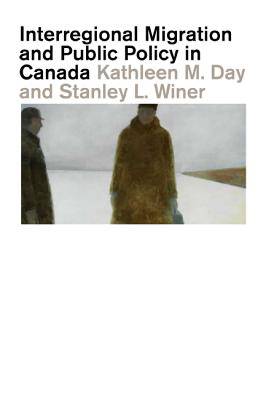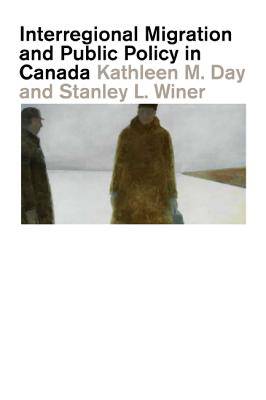
Bedankt voor het vertrouwen het afgelopen jaar! Om jou te bedanken bieden we GRATIS verzending (in België) aan op alles gedurende de hele maand januari.
- Afhalen na 1 uur in een winkel met voorraad
- In januari gratis thuislevering in België
- Ruim aanbod met 7 miljoen producten
Bedankt voor het vertrouwen het afgelopen jaar! Om jou te bedanken bieden we GRATIS verzending (in België) aan op alles gedurende de hele maand januari.
- Afhalen na 1 uur in een winkel met voorraad
- In januari gratis thuislevering in België
- Ruim aanbod met 7 miljoen producten
Zoeken
Interregional Migration and Public Policy in Canada
An Empirical Studyvolume 223
Stanley Winer, Kathleen M Day
€ 172,45
+ 344 punten
Uitvoering
Omschrijving
Using a unique dataset based on income tax records, authors Kathleen Day and Stanley Winer examine the factors influencing the decision to migrate within Canada, paying special attention to the role of regional variation in the generosity of public policies including unemployment insurance, taxation, and public expenditure. The influence of extraordinary events such as the election of a separatist government in Quebec and the closure of the east coast cod fishery is also considered. They look at why we ought to be concerned about public policies that interfere with market-based incentives to move, provide a wealth of information on interregional differences in public policies and market conditions, and examine what other researchers have discovered about fiscally induced migration, culminating in a discussion of the likely impact of various policy changes on migration and provincial unemployment rates. The authors' assessment of the lessons to be learned from their own and past research on policy-induced migration in Canada will be of interest to students of migration and policy makers alike.
Specificaties
Betrokkenen
- Auteur(s):
- Uitgeverij:
Inhoud
- Aantal bladzijden:
- 432
- Taal:
- Engels
- Reeks:
- Reeksnummer:
- nr. 223
Eigenschappen
- Productcode (EAN):
- 9780773537446
- Verschijningsdatum:
- 27/01/2012
- Uitvoering:
- Hardcover
- Formaat:
- Genaaid
- Afmetingen:
- 163 mm x 231 mm
- Gewicht:
- 771 g

Alleen bij Standaard Boekhandel
+ 344 punten op je klantenkaart van Standaard Boekhandel
Beoordelingen
We publiceren alleen reviews die voldoen aan de voorwaarden voor reviews. Bekijk onze voorwaarden voor reviews.









